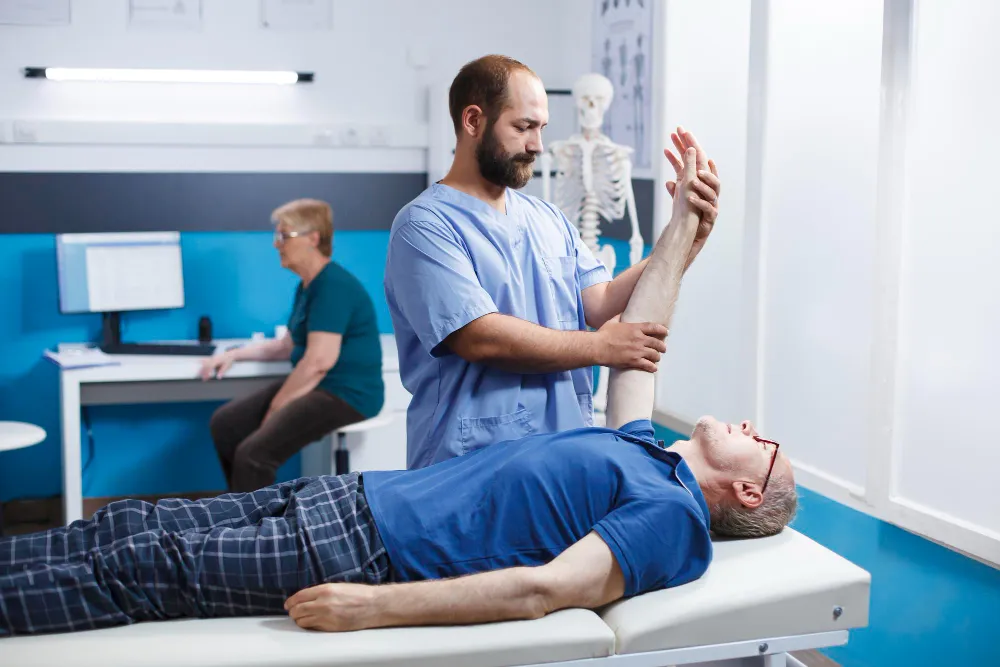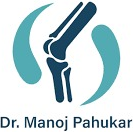Polytrauma & Multiple Injuries Treatment in Nagpur
Comprehensive, life‑saving care for patients with multiple traumatic injuries, delivered by an expert, multidisciplinary team for the best possible recovery.
What Is Polytrauma and Multiple Injuries Treatment
Polytrauma refers to the condition of having multiple traumatic injuries that affect more than one body part or organ system, often resulting from a severe event like a car accident, fall, explosion, or other high‑impact incident. These injuries can be life‑threatening and require immediate, coordinated, and multidisciplinary medical intervention.
Such cases demand rapid stabilization, advanced diagnostic evaluation, and simultaneous management of life‑threatening conditions. The goal is to preserve life, prevent further damage, and restore function through a carefully planned, team‑based approach.

Conditions Involving Polytrauma and Multiple Injuries
Polytrauma can result from high‑impact accidents or violent events, causing damage to multiple body systems at once. Each type of injury requires rapid diagnosis, immediate stabilization, and coordinated treatment by a multidisciplinary team to save lives and preserve function.
- Blunt Force Trauma: Caused by impact with a solid object or surface, leading to fractures, internal organ damage, and soft tissue injuries.
- Penetrating Trauma: Occurs when an object pierces the body, such as in gunshot wounds, stabbings, or shrapnel injuries.
- Crush Injuries: Result from prolonged pressure on the body, causing severe damage to muscles, nerves, and other tissues.
- Blast Injuries: Caused by explosions, often combining blunt, penetrating, and thermal injuries in a single event.
Types of Injuries in Polytrauma
Head and Brain Injuries
- Includes traumatic brain injury, skull fractures, and bleeding inside the brain, which can affect consciousness and neurological function.
Spinal Injuries
- Damage to vertebrae, spinal cord, or nerves, potentially leading to paralysis or loss of sensation.
Chest Injuries
- Rib fractures, collapsed lung, internal bleeding, lung bruising, or heart injury affecting breathing and circulation.
Abdominal Injuries
- Damage to organs like the liver, spleen, or kidneys, or perforation of hollow organs, can sometimes cause life‑threatening internal bleeding.
Pelvic and Extremity Injuries
- Fractures of the pelvis, femur, or complex limb fractures with associated soft tissue damage.
Vascular Injuries
- Tears or ruptures in major blood vessels leading to severe bleeding and reduced blood supply to tissues.
Burns and Thermal Injuries
- Superficial or deep burns and inhalation injuries that can damage skin, airways, and internal organs.
Comprehensive Management of Polytrauma
Managing polytrauma requires rapid, coordinated action from the moment of injury to ensure survival and minimize long‑term complications. The process begins before the patient reaches the hospital, with life‑saving interventions that stabilize vital functions and prepare for definitive care.
Prehospital Care
Initial Assessment and Stabilization
- Airway, Breathing, Circulation (ABCs): Ensuring the patient’s airway is clear, breathing is adequate, and circulation is maintained.
- Hemorrhage Control: Using tourniquets, direct pressure, and hemostatic agents to stop bleeding.
- Immobilization: Stabilizing fractures and spinal injuries to prevent further damage.
- Rapid Transport: Immediate transfer to a trauma center equipped for advanced care.
Advanced Trauma Life Support (ATLS)
- Following ATLS protocols to stabilize the patient.
- Administering fluid resuscitation, oxygen, and essential medications during transport.
Emergency Department Management
In polytrauma cases, the emergency department focuses on rapid assessment, life‑saving interventions, and identifying all injuries. Care is delivered in a structured sequence to stabilize the patient and prepare for definitive treatment.
Primary Survey (ABCDE)
- Airway & Breathing: Assess and manage breathing issues; insert a chest tube if pneumothorax is present.
- Circulation: Control bleeding, establish IV access, and begin fluid or blood transfusions.
- Disability: Evaluate neurological status using the Glasgow Coma Scale.
- Exposure: Fully examine the body to detect all visible injuries while preventing hypothermia.
Secondary Survey
- Detailed Examination: Conduct a thorough head‑to‑toe assessment after initial stabilization.
- Comprehensive Imaging: Use X‑rays, CT scans, or MRI to detect hidden or internal injuries.
Surgical Management
In polytrauma cases, surgical care is delivered in stages, starting with urgent, life‑saving procedures and followed by definitive repairs once the patient is stable. This approach ensures survival while laying the foundation for full recovery.
Damage Control Surgery
- Initial surgeries to control bleeding, prevent contamination, and stabilize fractures.
- Procedures such as laparotomy, thoracotomy, and external fixation of fractures.
Definitive Surgery
- Scheduled surgeries to repair injuries once the patient is stabilized.
- Includes internal fixation of fractures, reconstructive surgeries, vascular repairs, and organ repairs.
Intensive Care, Monitoring, and Long‑Term Rehabilitation
After initial surgery and stabilization, polytrauma patients often require specialized ICU care followed by a structured rehabilitation program. The goal is to ensure safe recovery, prevent complications, and help patients regain independence and quality of life.
ICU Care
- Continuous monitoring of vital signs, organ function, and neurological status.
- Ventilatory support, blood pressure regulation, and nutritional management.
Infection Control
- Prophylactic antibiotics to prevent infection.
- Strict aseptic techniques and close observation for early signs of infection.
Physical Therapy
- Early mobilization to prevent stiffness and muscle loss.
- Targeted exercises to restore strength, flexibility, and function.
Occupational Therapy
- Assistance with daily activities and self‑care.
- Adaptive techniques and specialized equipment to improve independence.
Psychological Support
- Counseling to address PTSD, anxiety, depression, and emotional recovery.
Follow‑Up Care
- Regular check‑ups to monitor healing and detect complications early.
- Planning further interventions if required for optimal recovery.
Polytrauma requires a comprehensive, multidisciplinary approach to manage the wide range of injuries and complications. Timely and coordinated care from the prehospital phase through rehabilitation is crucial for improving outcomes and enhancing the quality of life for polytrauma patients. The success of treatment depends on rapid assessment, effective stabilization, meticulous surgical intervention, and long-term rehabilitation.
Expert Care for Life‑Threatening Multiple Injuries
When every second counts, trust Dr. Manoj Pahukar and his experienced trauma team in Nagpur for rapid, coordinated treatment that saves lives and supports complete recovery.
Frequently Asked Questions
How quickly should a patient with polytrauma receive treatment?
Immediate intervention is critical, ideally within the “golden hour” to improve survival and recovery outcomes.
Can all injuries be treated at the same time?
Life‑threatening injuries are treated first, while less urgent ones are addressed once the patient is stable.
Will I need multiple surgeries for polytrauma?
Yes, often surgeries are staged, initial life‑saving procedures followed by definitive repairs later.
How long will ICU care be required?
It depends on injury severity, but patients may need days to weeks of intensive monitoring and support.
Is rehabilitation started while still in the hospital?
Yes, early physiotherapy and mobility exercises often begin in the hospital to speed recovery.
Can polytrauma cause long‑term disability?
It can, but timely treatment, rehabilitation, and follow‑up care greatly reduce the risk.
How is pain managed during recovery?
Will psychological support be part of my treatment?
Yes, counseling is often provided to help patients cope with trauma, anxiety, or post‑traumatic stress.

